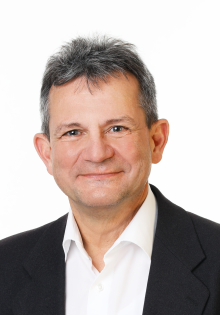Federal Ministry for Economic Affairs and Climate Action funds the NeMo.bil project
The NeMo.bil (New Mobility) project consortium has reached a major milestone: the Federal Ministry of Economics and Climate Action is funding the NeMo.bil project with a volume of 30 million euros. The project aims to create an innovative, swarm-capable mobility system that will serve as a beacon for the whole of Germany, enabling a new form of sustainable and demand-oriented passenger and goods transport in rural areas. The funding will run until June 2026.
Unlike conventional solutions, New Mobility takes a systemic approach. Automated smaller vehicles (Cabs) serving the first and last miles join together on longer routes to form a convoy pulled by a larger automated vehicle (Pro). The Cabs will weigh a maximum of 450 kilograms plus battery and have room for up to four people. The Pros serve as a mobile charging station and enable higher ranges and speeds in the convoy. By combining the two vehicles, the overall system achieves a previously unattainable energy efficiency.
The goal of the NeMo.bil project is the implementation of an innovative mobility approach that produces significant improvements in the areas of user acceptance, costs, resource use and emissions. The central components are compact, electrified and very light vehicles that provide demand-oriented transport services. The existing public transport system will be expanded by NeMo.bil vehicles and its attractiveness will be increased. The system will enable individual public mobility that will be as comfortable as using your own car.
The project consortium comprises 20 partners from industry and science. Start-ups, SMEs and large companies from a wide range of sectors are working together with scientific institutions to achieve the ambitious goal. The success of the implementation is linked to two core innovations: development of a user-centred, open control and operating platform and adaptation of the automated vehicles to the system requirements. This can strengthen the innovative power and future viability of German industry, with a special focus on small and medium-sized enterprises.
Sustainable transport systems in rural areas
Paderborn University with its three participating institutions, the chairs of Power Electronics and Electric Drives (LEA) and Lightweight Construction in the Automobile (LiA) as well as the SICP – Software Innovation Campus Paderborn plays a central role in the project. The University is actively involved in the overall coordination of the joint project in cooperation with the consortium leader Inyo Mobility GmbH and thus ensures the overall progress of the project. Furthermore, the participating areas are researching and developing system solutions in the field of sustainable and highly efficient vehicle structure, charging and drive technologies as well as the data-driven control and regulation algorithm of the autonomously and networked mobility system within their specialist domains.
‘We are very pleased about the extensive support from the federal government, which is sending a clear signal for sustainable transport systems in rural areas with its funding. The Hochstift Paderborn is ideally suited for piloting because here the state-wide problems in the field of mobility meet an innovative industrial and research landscape that is eager to put the ambitious goals on the road’, emphasise project initiator Prof. Dr. Thomas Tr?ster from the Institute for Lightweight Design with Hybrid Systems (ILH) at Paderborn University and Dr. Thorsten Marten, project coordinator of the NeMo.bil project from the Chair for Lightweight Construction in the Automobile (LiA) at Paderborn University.
20 partners involved
The following 20 partners form the consortium to implement the NeMo.bil project: Aspens GmbH, Avanco Composites GmbH, Brummelte und Lienen Werkzeugbau GmbH, CADFEM Germany GmbH, CP Tech GmbH, Deutsches Zentrum für Luft- und Raumfahrt e.V. (DLR), dSpace GmbH, FIWARE Foundation e.V., Holon GmbH, INYO Mobility GmbH, LIA GmbH, Neue Mobilit?t Paderborn e.V., PHOENIX CONTACT E-Mobility GmbH, Poppe + Potthoff GmbH, Reisewitz GmbH & Co. KG, Augsburg University of Technology, Ostwestfalen-Lippe University of Technology, Paderborn Universiry, Wissenschaftszentrum Berlin and Dortmund University of Technology.
This text has been translated automatically.





